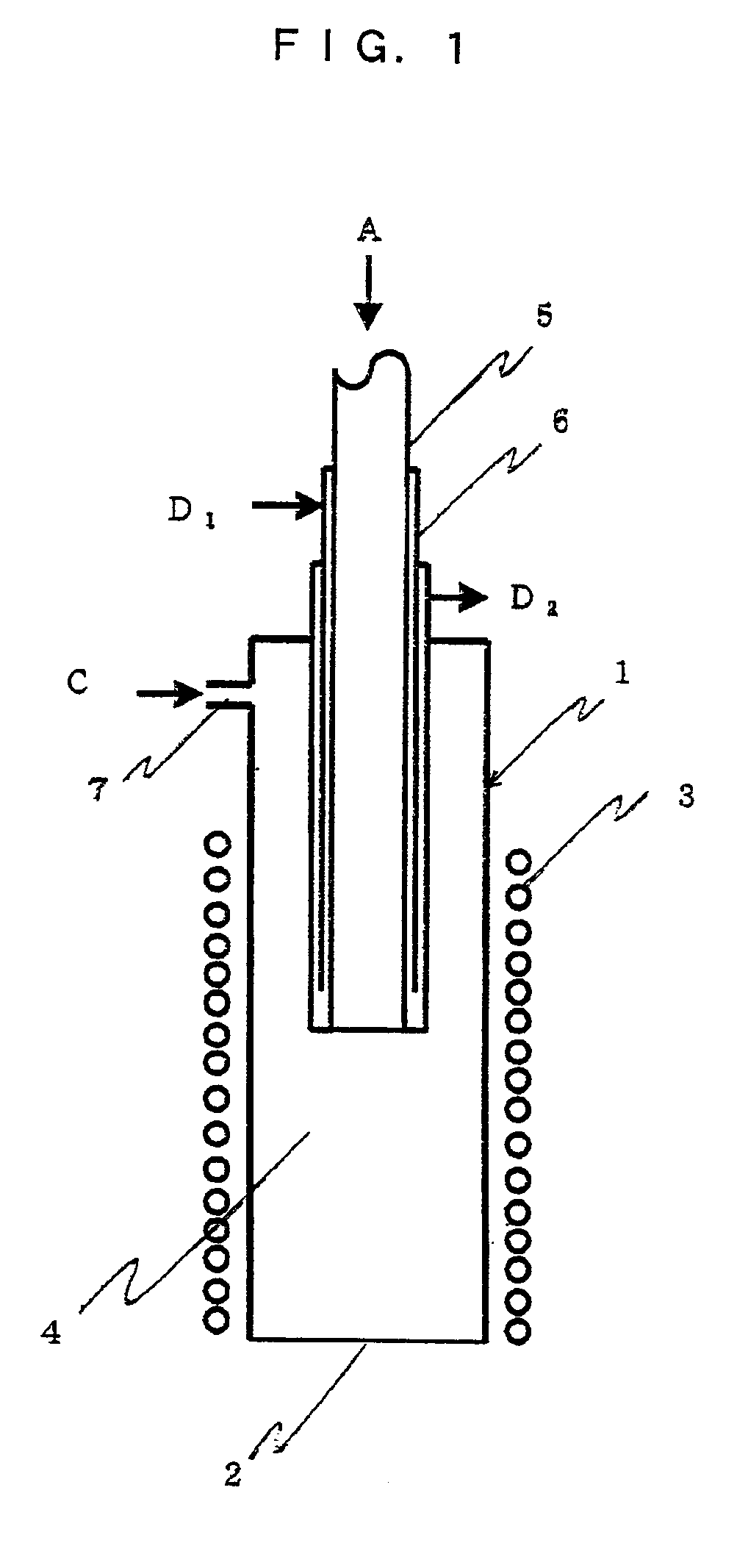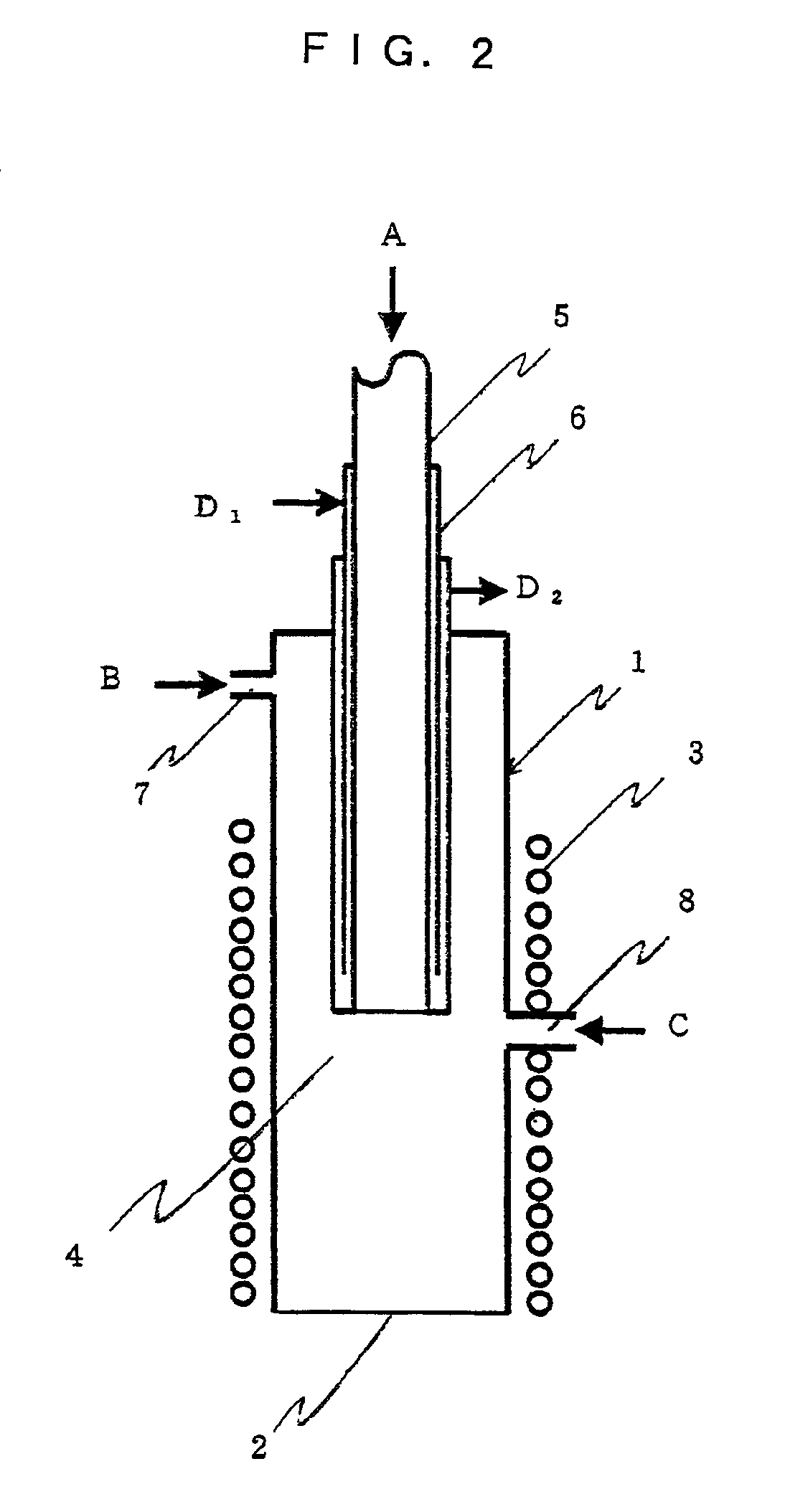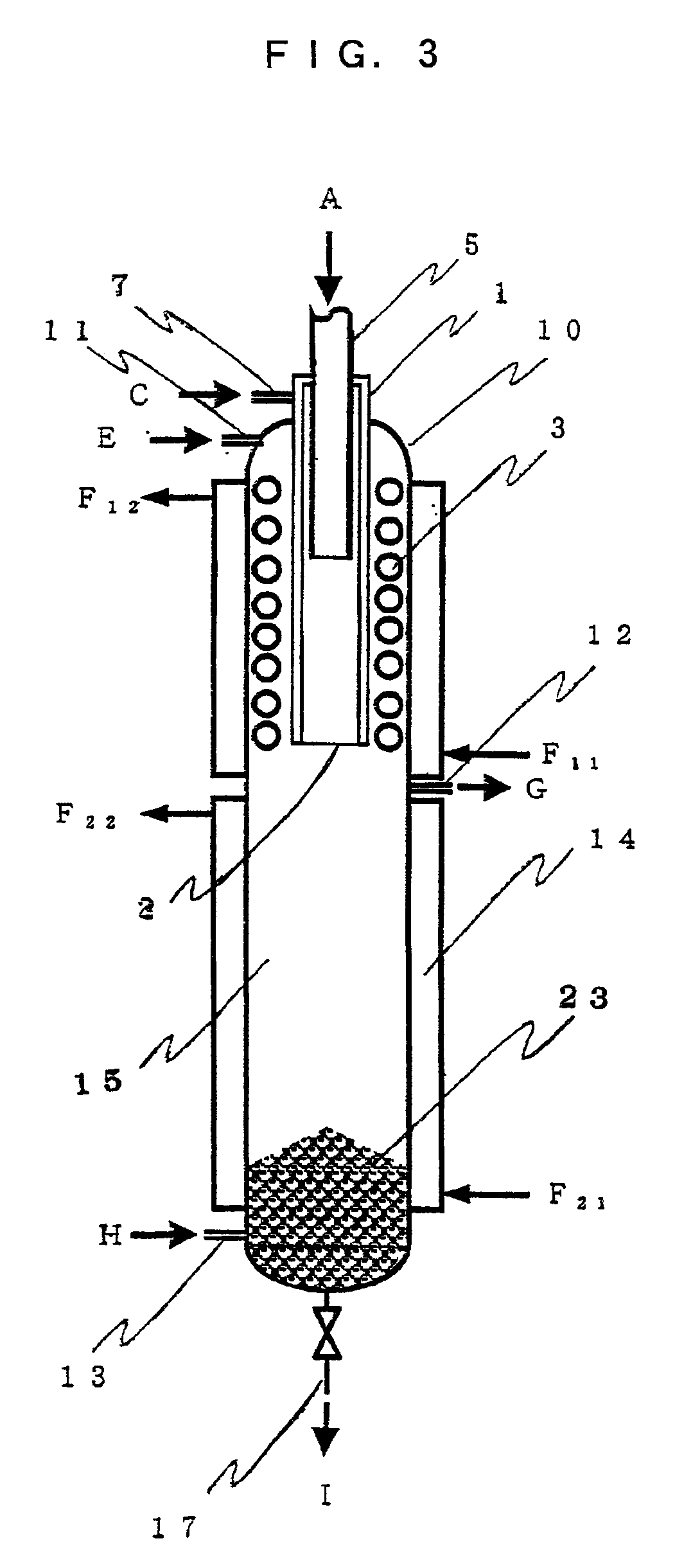Polycrystalline silicon and process and apparatus for producing the same
a technology of polycrystalline silicon and process, applied in the field of polycrystalline silicon, can solve the problems of large quantity of flaky and needle-like fine grains, and achieve the effect of achieving efficient results
- Summary
- Abstract
- Description
- Claims
- Application Information
AI Technical Summary
Benefits of technology
Problems solved by technology
Method used
Image
Examples
example 1
A polycrystalline silicon production apparatus similar to the apparatus shown in FIG. 3 was constructed to continuously produce polycrystalline silicon as follows.
A high-frequency induction heating coil was mounted as the heater 3 around a silicon carbide cylindrical vessel 1 having an opening 2 in a lower portion and an inner diameter of 25 mm and a length of 50 cm from a position 10 cm from the top to the lower end of the cylindrical vessel 1. A stainless steel chlorosilane feed pipe 5 having an inner diameter 10 mm and an outer diameter 17 mm and a jacket structure through which a liquid can be circulated as shown in FIG. 2 was inserted into the cylindrical vessel 1 to a height of 15 cm from the upper end of the cylindrical vessel. The closed vessel 10 had an inner diameter of 500 mm and a length of 3 m and was made from stainless steel.
The periphery of the lower end of the above cylindrical vessel had a shape shown in FIG. 5.
Water was let pass through the cooling jacket of the c...
example 2
Foamed polycrystalline silicon was obtained under the same conditions as in Example 1 except that a silicon molten liquid was formed from silicon tetrachloride as a source material.
When the apparent density of the solidified grain was measured, it was 2.05 g / cm3.
When the grain diameter of the crushed product obtained in the same manner as in Example 1 was measured, the proportion of fine grains passing through a sieve having an opening of 180 μm was 0.2%.
example 3
A silicon molten liquid was formed by filling a graphite cylindrical vessel having a hole in a lower portion with solid silicon and heating at 1,500° C. with high frequency in a hydrogen atmosphere in stead that a silicon molten liquid was formed by reacting trichlorosilane with hydrogen. Further, after it was kept in a molten state for 30 minutes in the presence of hydrogen, it was pressurized with hydrogen from above and dropped from the hole in the lower portion.
The separated and dropped silicon molten liquid droplets were dropped naturally and contacted to a cooling acceptor 9 installed at the lower portion in 0.5 second.
The cooling acceptor 9 was cooled by filling the previously obtained foamed polycrystalline silicon grains therein to maintain its surface temperature at 300° C.
When the apparent density of the solidified grain was measured, it was 2.11 g / cm3.
When the grain diameter of the crushed product obtained in the same manner as in Example 1 was measured by the SK laser, ...
PUM
| Property | Measurement | Unit |
|---|---|---|
| apparent density | aaaaa | aaaaa |
| weight | aaaaa | aaaaa |
| weight | aaaaa | aaaaa |
Abstract
Description
Claims
Application Information
 Login to View More
Login to View More - R&D
- Intellectual Property
- Life Sciences
- Materials
- Tech Scout
- Unparalleled Data Quality
- Higher Quality Content
- 60% Fewer Hallucinations
Browse by: Latest US Patents, China's latest patents, Technical Efficacy Thesaurus, Application Domain, Technology Topic, Popular Technical Reports.
© 2025 PatSnap. All rights reserved.Legal|Privacy policy|Modern Slavery Act Transparency Statement|Sitemap|About US| Contact US: help@patsnap.com



